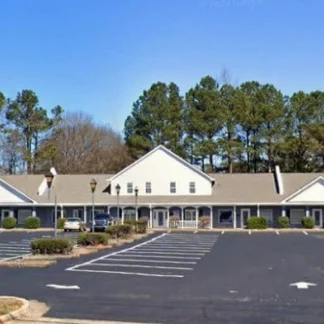Phoenix Behavioral Health
Phoenix Behavioral Health is a private rehab located in Jonesboro, GA. Phoenix B...
Smith Transitional and Rehabilitation Services is an Intensive Family Intervention Service designed to provide intervention and counseling to youth between ages 6-17 and their families who are dealing with behavioral concerns. Smith Transitional and Rehabilitation Services is located at Jonesboro, Georgia.
STARS provide Intensive Family Intervention Services to children and adolescents in crisis of a wide range of behavioral health. Services may include family therapy, individual counseling, community support and educational advocacy.
Their staff includes licensed professional counselors, licensed clinical workers, master’s level and bachelor’s level clinicians.
They provide different services that include in-home counseling, 24-hour crisis intervention, educational advocacy and support, community outreach, parenting education and training, drug and alcohol counseling, after school, childcare, and tutorial assistance, life skill development, rent/mortgage and utility assistance and other financial assistance.
Contact us for more information: (678) 479-9200

Connect with Smith Transitional and Rehabilitation Services by calling their admissions team directly.
(678) 479-9200 Website Get DirectionsThe Commission on Accreditation of Rehabilitation Facilities (CARF) is a non-profit organization that specifically accredits rehab organizations. Founded in 1966, CARF's, mission is to help service providers like rehab facilities maintain high standards of care.
CARF Accreditation: Yes
Research clearly demonstrates that recovery is far more successful and sustainable when loved ones like family members participate in rehab and substance abuse treatment. Genetic factors may be at play when it comes to drug and alcohol addiction, as well as mental health issues. Family dynamics often play a critical role in addiction triggers, and if properly educated, family members can be a strong source of support when it comes to rehabilitation.
Group therapy is any therapeutic work that happens in a group (not one-on-one). There are a number of different group therapy modalities, including support groups, experiential therapy, psycho-education, and more. Group therapy involves treatment as well as processing interaction between group members.
In individual therapy, a patient meets one-on-one with a trained psychologist or counselor. Therapy is a pivotal part of effective substance abuse treatment, as it often covers root causes of addiction, including challenges faced by the patient in their social, family, and work/school life.
Life skills trainings involve all the skills a person must have in order to function successfully in the world. These include time management, career guidance, money management, and effective communication. Truly successful addiction recovery is based on the ability to not only live substance-free, but to thrive. Life skills teaches the practical necessities of functioning in society, which sets clients up for success in life, and therefore sobriety.
Group therapy is any therapeutic work that happens in a group (not one-on-one). There are a number of different group therapy modalities, including support groups, experiential therapy, psycho-education, and more. Group therapy involves treatment as well as processing interaction between group members.
In individual therapy, a patient meets one-on-one with a trained psychologist or counselor. Therapy is a pivotal part of effective substance abuse treatment, as it often covers root causes of addiction, including challenges faced by the patient in their social, family, and work/school life.
Life skills trainings involve all the skills a person must have in order to function successfully in the world. These include time management, career guidance, money management, and effective communication. Truly successful addiction recovery is based on the ability to not only live substance-free, but to thrive. Life skills teaches the practical necessities of functioning in society, which sets clients up for success in life, and therefore sobriety.
In individual therapy, a patient meets one-on-one with a trained psychologist or counselor. Therapy is a pivotal part of effective substance abuse treatment, as it often covers root causes of addiction, including challenges faced by the patient in their social, family, and work/school life.
Life skills trainings involve all the skills a person must have in order to function successfully in the world. These include time management, career guidance, money management, and effective communication. Truly successful addiction recovery is based on the ability to not only live substance-free, but to thrive. Life skills teaches the practical necessities of functioning in society, which sets clients up for success in life, and therefore sobriety.
Life skills trainings involve all the skills a person must have in order to function successfully in the world. These include time management, career guidance, money management, and effective communication. Truly successful addiction recovery is based on the ability to not only live substance-free, but to thrive. Life skills teaches the practical necessities of functioning in society, which sets clients up for success in life, and therefore sobriety.
Phoenix Behavioral Health is a private rehab located in Jonesboro, GA. Phoenix B...
Anchor Hospital Outpatient Campus, located in Riverdale, Georgia, offers chemica...
New Heights Behavioral Consultants is a private rehab located in Jonesboro, Geor...
Associated Counseling and EVAL Services is a private rehab located in Jonesboro,...